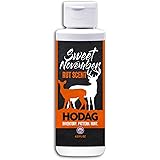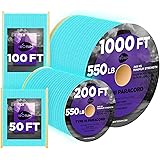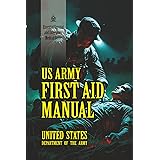The sounds emanating from the video above—a mix of “Mmm” and “Ahh”—might initially puzzle a viewer. However, in the context of the video’s title, “Soy sauce cough medicine #camping #survival #medicine #outdoors,” these are likely the reactions of individuals experimenting with an unconventional remedy for a common ailment: the persistent cough. When you’re deep in the wilderness, far from pharmacies and medical clinics, traditional remedies often become inaccessible. This is where ingenuity, and sometimes surprising pantry staples like soy sauce, can come into play as a makeshift cough remedy.
For outdoor enthusiasts, preppers, and anyone interested in natural or emergency solutions, understanding how common items might serve unexpected purposes is invaluable. While this concept of using soy sauce cough medicine might sound like an old wives’ tale, there’s a fascinating blend of traditional wisdom and practical application behind why some people turn to it in a pinch. Let’s delve into the mechanics of this intriguing folk remedy and explore its potential benefits and crucial limitations, particularly for those facing a cough in a survival or camping scenario.
The Unexpected Helper: Soy Sauce as a Cough Remedy
Soy sauce, a fermented condiment ubiquitous in kitchens worldwide, is primarily known for its distinct salty, umami flavor. Its core ingredients typically include soybeans, wheat, water, and salt. But can this culinary staple genuinely act as a cough remedy? The anecdotal evidence suggests that for some, it offers temporary relief from the tickle and irritation that often accompanies a cough, especially a dry or scratchy one.
On one hand, many traditional remedies leverage simple components that are readily available. The idea isn’t entirely baseless if we consider the properties of its main constituents. Salt, for instance, has long been used in various forms to alleviate throat discomfort. Think of gargling with salt water for a sore throat—it’s a time-honored practice. The viscous nature of soy sauce might also provide a soothing coating to an irritated throat, offering a momentary reprieve from coughing fits.
Unpacking the ‘Why’: How Might Soy Sauce Address a Cough?
While soy sauce is certainly not a medically recognized treatment for respiratory infections, its proposed effectiveness as a survival cough medicine often hinges on a few key factors:
- Salty Properties: High salinity can draw out moisture, potentially reducing swelling and discomfort in irritated throat tissues. This osmotic effect might also help to thin mucus, making it easier to expel.
- Placebo Effect: Never underestimate the power of belief, especially in dire circumstances. If someone believes a remedy will work, their body may respond positively, leading to perceived relief.
- Soothing Sensation: The thick consistency of soy sauce, especially when consumed slowly, can provide a coating sensation that temporarily soothes a scratchy or dry throat. This physical barrier might reduce the immediate irritation triggering a cough reflex.
- Potential Anti-inflammatory Compounds: Some research into fermented foods like soy sauce suggests the presence of compounds with mild anti-inflammatory or antioxidant properties. While not a cure, these might contribute to a general sense of well-being or slight reduction in irritation.
It’s important to differentiate between temporary symptomatic relief and treating the underlying cause of a cough. This approach is more about managing symptoms when conventional medical intervention is out of reach.
Administering This Makeshift Remedy: Practical Considerations
Should you find yourself in a situation requiring creative solutions for a cough, like during a remote camping trip or a longer emergency preparedness scenario, preparing soy sauce for cough relief is straightforward. However, moderation is key due to its high sodium content.
How to Use Soy Sauce for Coughs (If You Must):
- Small Amounts: Typically, a spoonful (around 5-15 ml) is suggested, perhaps diluted slightly with warm water to make it more palatable and less harsh on the throat.
- Slow Consumption: Instead of gulping it down, sip it slowly, allowing it to coat the throat. This maximizes the soothing effect.
- Frequency: Use sparingly, perhaps every few hours as needed, but always be mindful of overall sodium intake.
Some folk remedies suggest adding a touch of honey if available, which is a scientifically recognized cough suppressant, particularly for children. The combination could potentially offer enhanced relief, blending the traditional soothing properties of honey with the saline effects of soy sauce. However, remember this is a home remedy, not a medical treatment.
When Is Soy Sauce Cough Medicine Truly Useful?
The utility of soy sauce as a cough remedy truly shines in specific, challenging situations. Imagine you’re days into a backcountry hike or a secluded outdoor survival expedition, and a nagging cough starts. Your medical kit might be limited, and professional help is hours, if not days, away. In such scenarios, any form of temporary relief can make a significant difference in comfort and morale.
For those engaged in backcountry first aid or emergency readiness, knowing a few unconventional uses for common items is a valuable skill. It’s about making do with what you have. This isn’t intended to replace actual medicine but to bridge the gap when conventional options are simply not viable. For a persistent, irritating cough that’s making sleep or daily activities difficult, even minor relief from a readily available item like soy sauce can be a small victory in a tough situation.
Beyond the Cough: General Preparedness for Illness in the Wild
While exploring options like folk remedies and creative uses for everyday items, it’s critical to also maintain a robust approach to general preparedness. A cough is often a symptom of a broader issue, such as a cold, flu, or allergies. Preventing illness and having appropriate supplies should always be the priority, even if you are considering a last-ditch natural remedies solution like soy sauce cough medicine.
- Hydration: Always carry ample water or purification methods. Staying hydrated is crucial for thin mucus and soothing sore throats.
- Warmth: Protect yourself from exposure. Hypothermia can worsen respiratory symptoms.
- Basic Medical Kit: Include pain relievers, fever reducers, decongestants, and throat lozenges if possible. These are far more effective than soy sauce.
- Rest: Encourage rest. Your body needs energy to fight off illness.
- Hygiene: Practice good hygiene to prevent illness from spreading within your group.
Critical Caveats and When to Seek Medical Attention
It cannot be stressed enough that soy sauce is not a medical treatment. It is a temporary, anecdotal sore throat or cough reliever at best. Relying on it for serious conditions can be dangerous. Always prioritize professional medical attention when available.
There are clear red flags that indicate a cough is more than just an irritation and requires immediate professional medical evaluation:
- Difficulty Breathing: Any shortness of breath, wheezing, or gasping.
- High Fever: Especially if persistent or unresponsive to common fever reducers.
- Chest Pain: Sharp or persistent pain when coughing or breathing.
- Bloody Mucus: Coughing up blood or pink/rust-colored phlegm.
- Severe Weakness or Confusion: Signs of a more serious infection or dehydration.
- Cough Lasting More Than a Few Days: Especially if it worsens.
In a true emergency or survival situation, assessing the severity of symptoms is paramount. While a small amount of soy sauce might offer a moment of comfort for a minor, irritating cough, it should never delay seeking proper medical care for anything more serious. This potential soy sauce cough medicine solution is merely a stop-gap measure for very specific, non-life-threatening circumstances.











